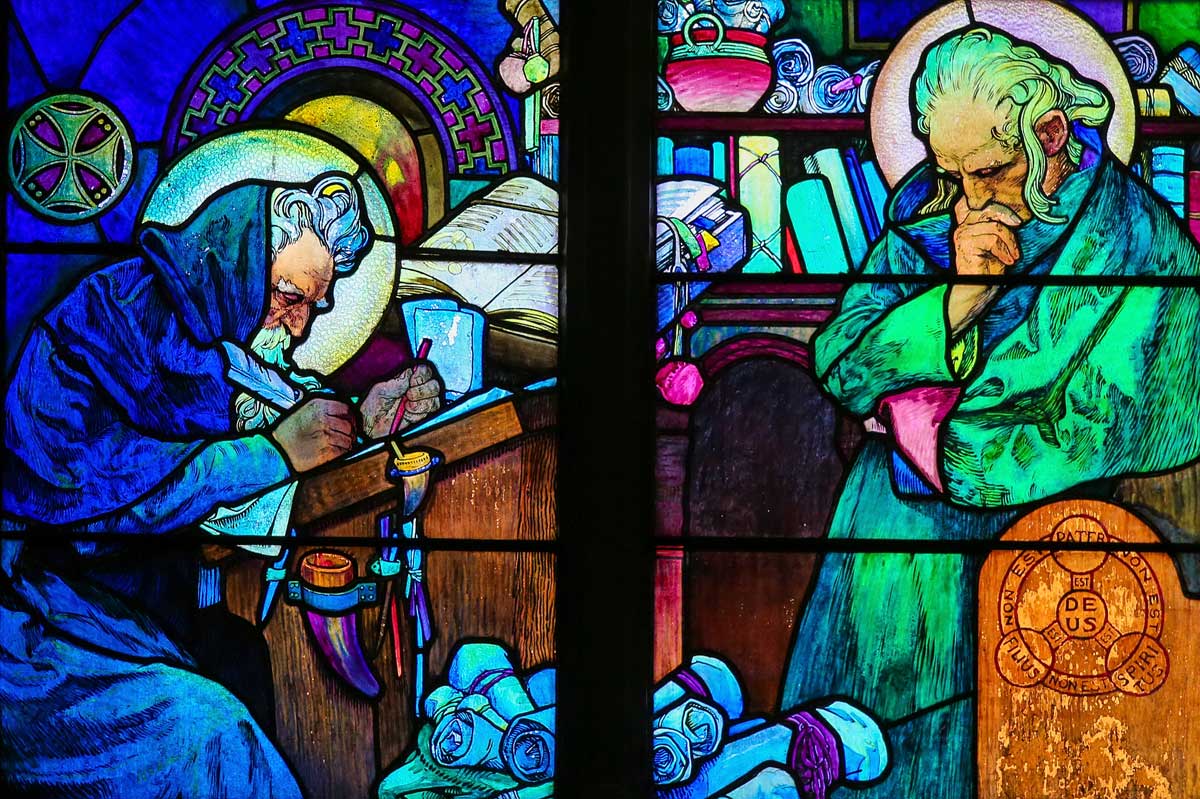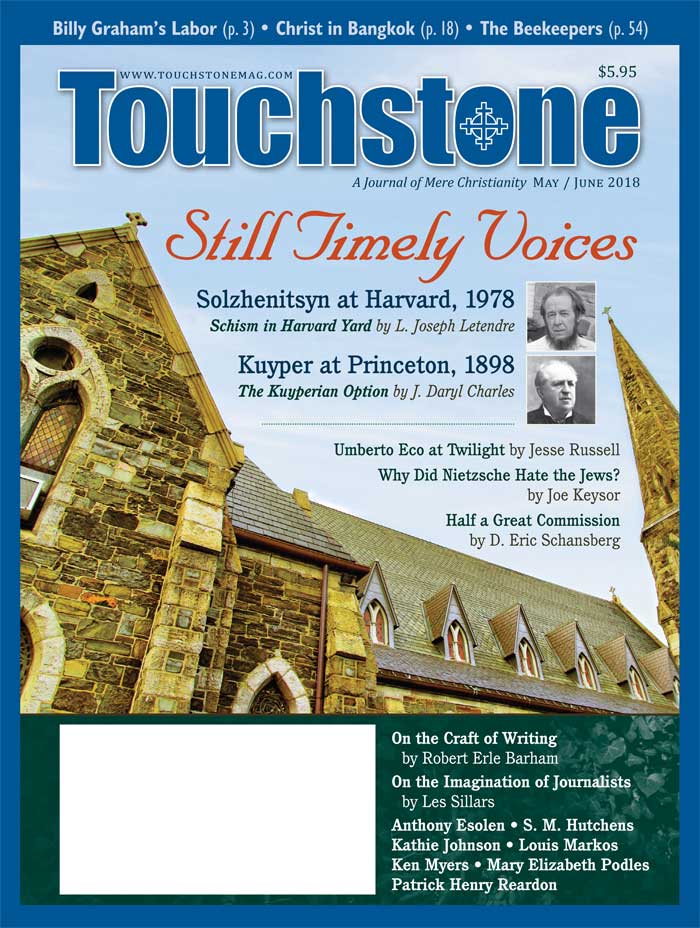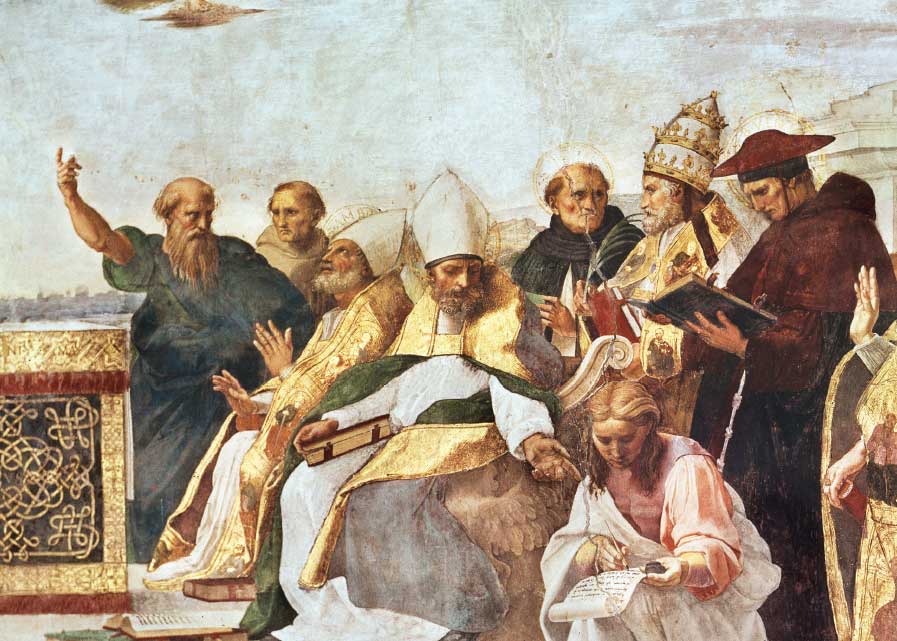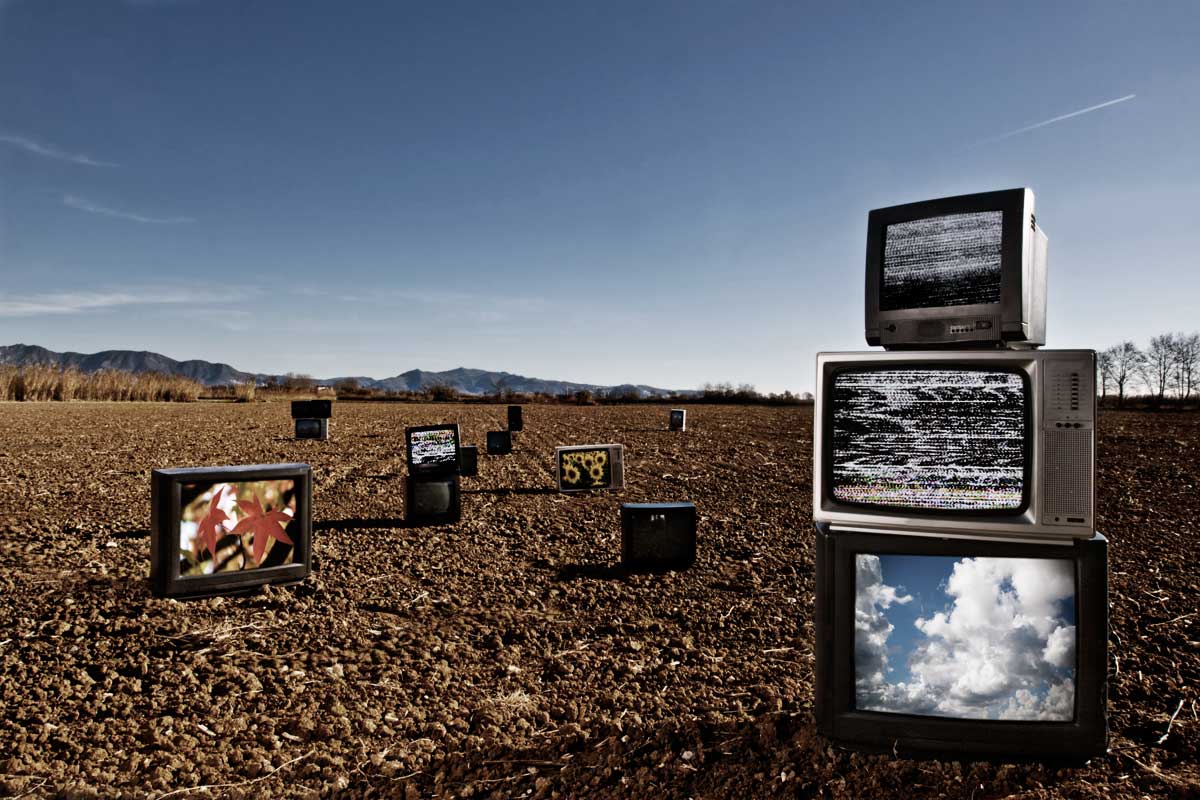View
Literary Light
Robert Erle Barham on the Craft of Creating Worlds of Words
"I'm just not a good writer." One idea that I encounter in the college classroom—represented by remarks like this one—is the view of writing as talent rather than craft. The notion that writing mainly results from one's constitution can deter students from the dedication that leads to better work. As a result, I make analogies to arts like carpentry and sculpture throughout each semester.
I have also found it helpful to talk about writing as a technology. Because it's so familiar, we don't tend to think of writing as such, but it is a technology, albeit thousands of years old. Imagine if I said, "There is a device that can sharpen your thinking. It can give you clarity and improve your understanding of any subject." What would you think of? Probably not a pencil or even a keyboard. But this is what writing does: it externalizes our thoughts so that, among other things, we can refine them, and express more exactly what we think about some question or topic. Consequently, we can clarify and deepen our ideas. Like an atlatl, that ancient lever used to amplify the force of a spear, writing enables us to focus and extend our thoughts.
As a tool for thought, writing rewards effort. In his poem "Digging," Seamus Heaney compares his pen to his father's and grandfather's spades, suggesting that labor is required to dig out meaning. Echoing Heaney in one of the most enjoyable writing manuals that I know of, On Writing: A Memoir of the Craft, Stephen King compares stories to subterranean fossils that a writer must excavate (163–164). I like Heaney's and King's analogies because they remind me that writing is a technology of discovery, one that requires sweat. And although they refer, respectively, to the writing of poetry and of fiction, their imagery vividly represents the way that writing of any kind often works: ideas otherwise unavailable can come with diligent effort.
Discovery in writing results from working to express one's thoughts ever more precisely and accurately. Initially, my own thoughts about a given topic can be scattered and indistinct, but as the authors of The Craft of Research note, the act of writing enables me to pin them down and assess them clearly (13). When one's ideas are externalized as text, they can be improved upon through attention and articulacy: as the writer attends carefully to what he is addressing, he learns to refine his language. This process of vision and revision can lead to a special kind of clarity that feels serendipitous. The refrain I often hear from students who achieve this point of clarity is, "That's what I've been trying to say all along!" It's as if they have given voice to the hum of some internal tuning fork.
What's more, this process invites conviction. Kelly Kapic notes this effect at the outset of his book Embodied Hope: A Theological Meditation on Pain and Suffering: "I find that I rarely know what I think—really think—about something until I have had to write about it" (3). Often we write perfunctorily. As Peter Elbow notes, this happens in academic settings because of the nature of school assignments: we write because we have to, frequently with artificial constraints, and solely for teachers (see Writing with Power, 216–235). In contrast, when one is committed to representing one's thoughts in writing, it can produce conviction—that is, recognition of what one really thinks.
Scripture-Shaped Writing
For those of us who are Christians, Scripture will shape our writing, perhaps more comprehensively than we realize. In Clear and Simple as the Truth, Francis-Noël Thomas and Mark Turner note how different styles of writing reflect assumptions about the world and about the possibility of communicating ideas to a reader—even before words are put on paper. Christians write with a set of assumptions about the world, others, and themselves that are based on revelation, and these will be manifested in their writing, often subtly and pervasively.
The influence of Scripture on writing is important in part because of writing's capacity to represent reality. In Discourses on the Heroic Poem (1594), Renaissance poet Torquato Tasso refers to the epic poem as "a little world" created by a poet who resembles God through analogous making.
We can easily see how Tasso's idea applies to works of poetry and fiction. When I read a work like J. R. R. Tolkien's The Lord of the Rings or Umberto Eco's The Name of the Rose, I enter a fictional world rendered with such depth and complexity that it is a delight to inhabit. But the idea of creating a "little world" can apply to nonfiction as well. A well-wrought essay, for example, will be informed by many of the author's assumptions about the human constitution, nature, or culture. The sum of implicit and explicit ideas expressed constitutes the author's attempt to represent things as they are. When I read such an essay, I inhabit a little world of the author's making, which will correspond to, and conflict with, the actual one in various ways. Writing in the light of Scripture offers the opportunity to create little worlds that honor God by more accurately representing reality, thereby better orienting the reader to the world as it is.
Illuminating the World
The writers I most enjoy have expressed some aspect of life with moving and recognizable truth. Often they have reminded me of some feature of the world, even if obliquely. For example, Annie Dillard's Pilgrim at Tinker Creek reminds me of the fierce vitality of nature; Vladimir Nabokov's Speak, Memory calls to mind the curious operation of memory and the delicate beauty of the past; and Fredrick Buechner's portrait of childhood in The Sacred Journey conveys its events as seeming to unfold outside of time. James Lasdun calls such writers "flight helpers," the same term as was used for those who helped others over the Berlin Wall in the days of a divided Germany (Give Me Everything You Have,96). As he puts it, they can help you "find your way into" reality.
The microcosm metaphor clarifies the power of writing because it suggests that works like those mentioned above have effects not strictly owing to their intellectual, ideological, or moral content. Rather than mere information, each communicates a compelling vision of the world. On this point, the distinction between poetry and prose, fiction and nonfiction, matters little. The broader term "literature" is more helpful, for the power of artistic insight is the essential feature, whatever the genre.
But not power in an abstract Freudian or Marxist sense, where potency results from unacknowledged biological or cultural forces. The strength I'm describing comes from literature's capacity to illuminate the world, or some aspect of it, without reducing its complexity. These days, scientific-materialist conceptions of reality are pervasive. But as believers who live in the light of Scripture, Christians are committed to a more robust understanding of the world. And literature offers just this—or at least it can at its best.
When I think of literary representations of reality that testify to the richness of Creation, I immediately think of Richard Wilbur's poem "Love Calls Us to the Things of This World." Wilbur describes the air as "all awash with angels," thus recognizing the presence of spiritual realities. I also think of W. H. Auden's poem "As I Walked Out One Evening," with its picture of the strange blessedness of life in a fallen world.
One prose example that I return to regularly is Marilynne Robinson's novel Gilead, told in the form of a memoir being written by the aged preacher John Ames to his son. There are many felicities of Gilead worth celebrating, but it is the protagonist's vision of life that makes the novel a pleasure to read. For instance, here is Ames sharing a memory:
There was a young couple strolling along half a block ahead of me. The sun had come up brilliantly after a heavy rain, and the trees were glistening and very wet. On some impulse, plain exuberance, I suppose, the fellow jumped up and caught hold of a branch, and a storm of luminous water came pouring down on the two of them, and they laughed and took off running, the girl sweeping water off her hair and her dress as if she were a little bit disgusted, but she wasn't. It was a beautiful thing to see, like something from a myth. I don't know why I thought of that now, except perhaps because it is easy to believe in such moments that water was made primarily for blessing, and only secondarily for growing vegetables or doing the wash. (27–28)
Ames's perspective includes attention to such moments and a willingness to appreciate their beauty. His depiction of the world as Creation is subtle—note "water was made"—but his association of water with blessing comes from a kind of active seeing that recognizes the goodness of life. He has suffered, but he still sees blessedness rather than banality around him. While Ames points out the evanescent quality of his experience ("it is easy to believe in such moments"), this qualification is part of the passage's power, a setting for the jewel of his observation.
To borrow Umberto Eco's phrase, writing is a "cosmological affair": we can create little worlds that recognize the truths of Scripture, explore the goodness of Creation, and examine our experiences in light of revelation (Confessions of a Young Novelist, 14). The best writing, no matter the genre, will represent reality with beauty, mystery, and complexity. While I have mentioned some extraordinary examples above, our work can do the same. This is why the craft of writing matters: writing is a technology of discovery, one by which we can create little worlds of words that glorify God.
Robert Erle Barham is Assistant Professor of English at Covenant College in Lookout Mountain, Georgia. He and his wife Amy live with their son Robert in Chattanooga, Tennessee, and are members of Lookout Mountain Presbyterian Church.
subscription options
Order
Print/Online Subscription

Get six issues (one year) of Touchstone PLUS full online access including pdf downloads for only $39.95. That's only $3.34 per month!
Order
Online Only
Subscription

Get a one-year full-access subscription to the Touchstone online archives for only $19.95. That's only $1.66 per month!
bulk subscriptions
Order Touchstone subscriptions in bulk and save $10 per sub! Each subscription includes 6 issues of Touchstone plus full online access to touchstonemag.com—including archives, videos, and pdf downloads of recent issues for only $29.95 each! Great for churches or study groups.
Transactions will be processed on a secure server.
more on education from the online archives
more from the online archives
calling all readers
Please Donate
"There are magazines worth reading but few worth saving . . . Touchstone is just such a magazine."
—Alice von Hildebrand
"Here we do not concede one square millimeter of territory to falsehood, folly, contemporary sentimentality, or fashion. We speak the truth, and let God be our judge. . . . Touchstone is the one committedly Christian conservative journal."
—Anthony Esolen, Touchstone senior editor













